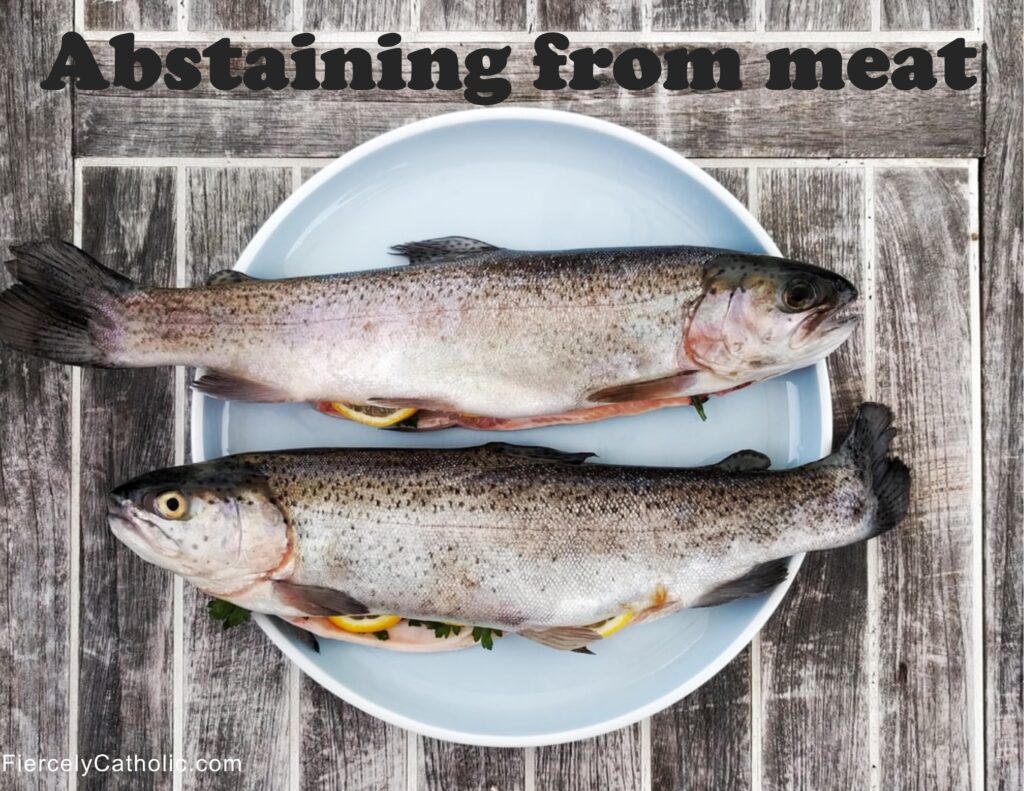
On Ash Wednesday, Good Friday, and all Fridays during Lent, Catholics 14 years of age and older are required to abstain from eating meat.
Fridays during Lent and every week of the year recall Jesus’ sacrifice on the Cross on Good Friday.
By abstaining from meat and performing other Lenten practices, Catholics join themselves to Jesus’ suffering.
It is intended to be a sacrifice so substituting the meat of mammals and birds with other delicacies that may be even more desirable misses the point.
By not eating meat, which is good for us, it also shows our reliance on God.
A Catholic farewell to meat:
Abstinence is a form of denying yourself of something:
In those days I, Daniel, was mourning for three weeks. I ate no delicacies, no meat or wine entered my mouth, nor did I anoint myself at all, for the full three weeks.
Daniel 10: 2-3
Catholics give up meat on the day Jesus gave up his life:
Friday is a day of preparation for Sunday and Jesus’ Resurrection:
The flesh of mammals and birds has been associated with celebration:
The fourth precept (“You shall observe the days of fasting and abstinence established by the Church”) ensures the times of ascesis and penance which prepare us for the liturgical feasts and help us acquire mastery over our instincts and freedom of heart.
Catechism of the Catholic Church 2043
The Church used to require meatless Fridays every week:
Some form of penance on any Friday is good:
Abstinence symbolizes dependence on God:
Pope Paul VI’s Apostolic Constitution Paenitemini, which I had the opportunity to talk about last Sunday reaffirms the traditional discipline that the Fridays of each week, as well as Ash Wednesday, are considered special days of penance. This directive is still in force, even if it is left to the Episcopal Conferences to determine certain concrete forms, such as the possibility of substituting abstinence from meat or fasting with other forms of penance, especially charitable works and pious exercises. This ascetical practice is not based on any negative prejudice towards material realities. In fact, Christianity holds that since all things are created by God they are positive, and so is their use, as long as it conforms to the Creator’s plan. The true significance of exterior renunciation can be found rather in the help that these actions give the believer in fully living his interior repentance, that is, the task of conversion.
Pope John Paul II, Angelus Address, March 3, 1996
Making something ordinary into something sacred:
The Truth, Goodness, and Beauty of the Catholic Church
Protectors of the Pope:
Share this page with friends and family to start a conversation about your faith.
Don’t miss a post. Learn more about the Catholic Church and strengthen your Catholic faith.
Find more Fiercely Catholic video issues here.
Subscribe here.


